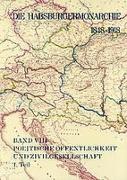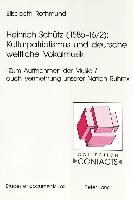Die Habsburgermonarchie 1848-1918 Band VIII/1: Politische Öffentlichkeit und Zivilgesellschaft
BücherAngebote / Angebote:
War der zuletzt erschienene Band des Reihenwerkes "Die Habsburgermonarchie 1848-1918" der Verfassungsentwicklung und der Geschichte der parlamentarischen Vertretungskörperschaften gewidmet und befasste sich somit mit der politischen Elite, muss die Frage nach dem Demokratisierungsgrad und -potential an jene gesellschaftlichen Bereiche und Prozesse gerichtet werden, die jenseits von Verfassungsdiskussion und Parlamentsarbeit lagen. Die "Politisierung der Massen" vollzog sich in politischen und kulturellen Milieus, die vor und jenseits der organisierten Politik angesiedelt waren, Milieus, die von Vereinen und lokalen Organisationen bevölkert waren und die über das Kommunikationsnetz einer überwiegend lokalen Presse in Schwung gehalten wurden. Aus den Vereinsleitungen und den Redaktionsstuben kamen die Aktivisten, die die Träger jenes epochalen Wandels waren, der aus dem traditionellen bürokratischen Feudalstaat den bürgerlichen Volksstaat formte. Vereine und Parteien und die Fülle der Printmedien waren die "Schule", in der man das lernte und übte, was man in der großen Politik brauchte.
...
The latest volume of the series "Die Habsburgermonarchie 1848-1918" was dedicated to constitutional questions and the history of parliamentary institutions, it therefore dealt with political elites. However, the question of how strong was the degree of and the potential for democratization has to be put to those social spheres and processes which exist beyond the sphere of discussions on constitutional matters and of parliamentary sittings. The "politicization of masses" took place in political and cultural milieus outside and beyond organized politics, milieus which were dominated by associations and local organizations held together by a communications system of a primarily local press. It was the activists coming out from steering committees of associations and of editorial offices who were responsible for the transformation from a traditional bureaucratic-feudal state to a civil state of the people. Associations, parties and the abundance of print-media were the "school" in which ordinary people learned and trained for what was necessary in politics.
Folgt in ca. 2-3 Arbeitstagen




